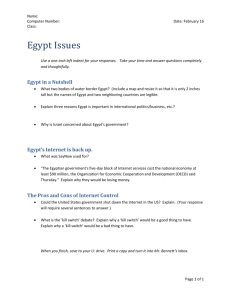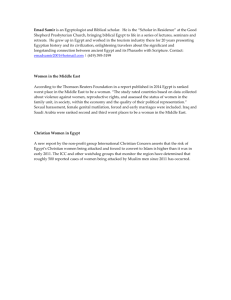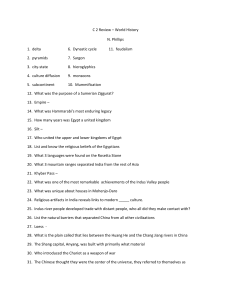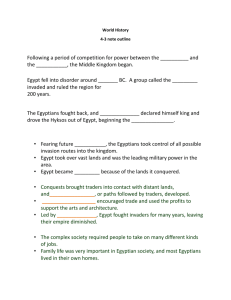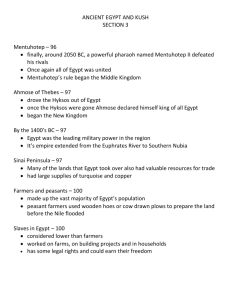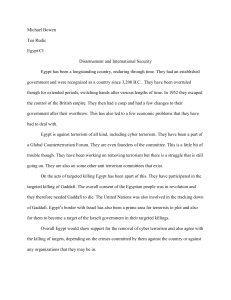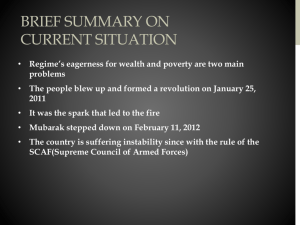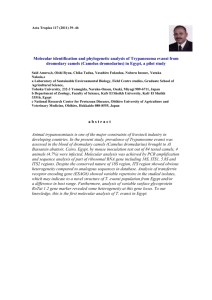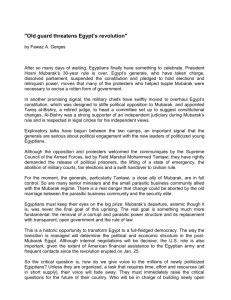art #33 AFTER THE REVOLUTION, EGYPT SPLINTERS, OMNEYA
advertisement
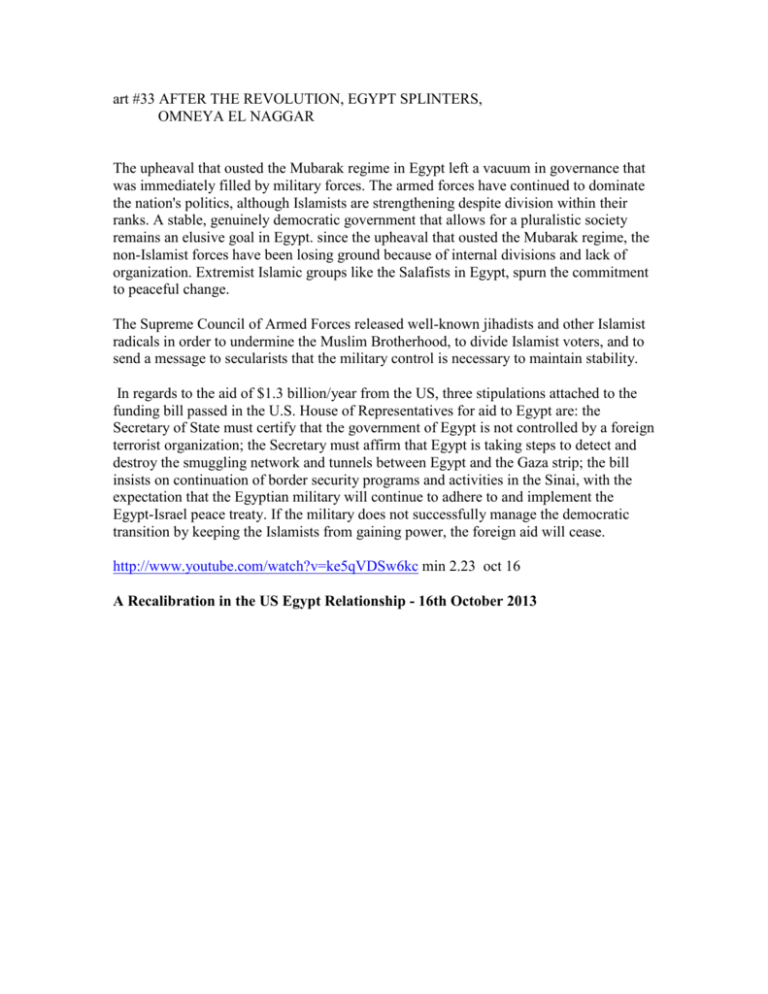
art #33 AFTER THE REVOLUTION, EGYPT SPLINTERS, OMNEYA EL NAGGAR The upheaval that ousted the Mubarak regime in Egypt left a vacuum in governance that was immediately filled by military forces. The armed forces have continued to dominate the nation's politics, although Islamists are strengthening despite division within their ranks. A stable, genuinely democratic government that allows for a pluralistic society remains an elusive goal in Egypt. since the upheaval that ousted the Mubarak regime, the non-Islamist forces have been losing ground because of internal divisions and lack of organization. Extremist Islamic groups like the Salafists in Egypt, spurn the commitment to peaceful change. The Supreme Council of Armed Forces released well-known jihadists and other Islamist radicals in order to undermine the Muslim Brotherhood, to divide Islamist voters, and to send a message to secularists that the military control is necessary to maintain stability. In regards to the aid of $1.3 billion/year from the US, three stipulations attached to the funding bill passed in the U.S. House of Representatives for aid to Egypt are: the Secretary of State must certify that the government of Egypt is not controlled by a foreign terrorist organization; the Secretary must affirm that Egypt is taking steps to detect and destroy the smuggling network and tunnels between Egypt and the Gaza strip; the bill insists on continuation of border security programs and activities in the Sinai, with the expectation that the Egyptian military will continue to adhere to and implement the Egypt-Israel peace treaty. If the military does not successfully manage the democratic transition by keeping the Islamists from gaining power, the foreign aid will cease. http://www.youtube.com/watch?v=ke5qVDSw6kc min 2.23 oct 16 A Recalibration in the US Egypt Relationship - 16th October 2013


